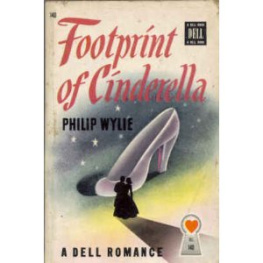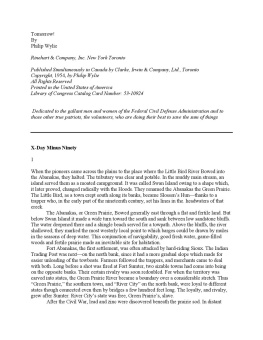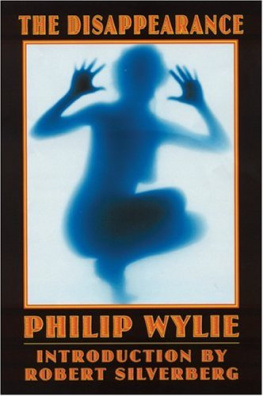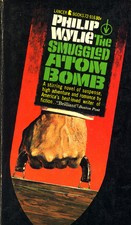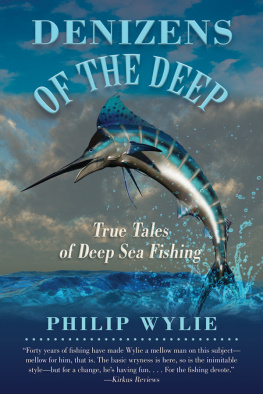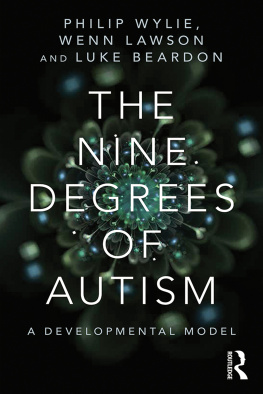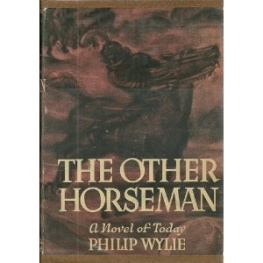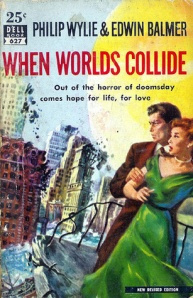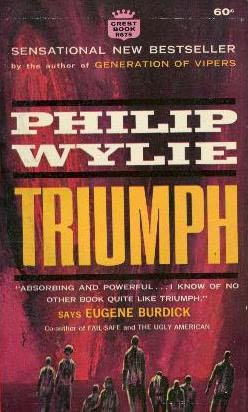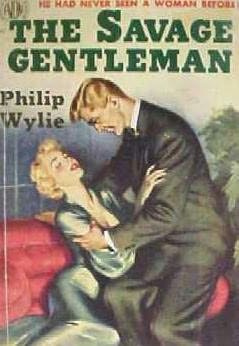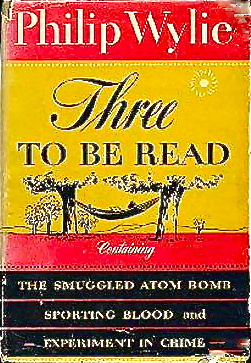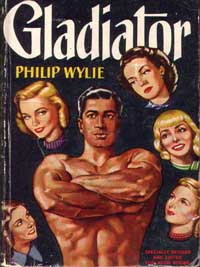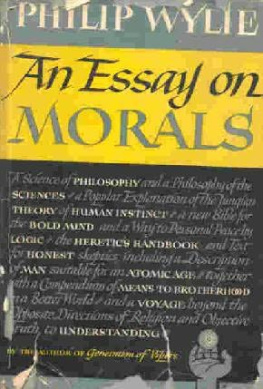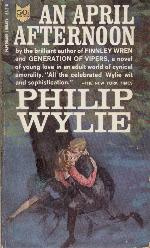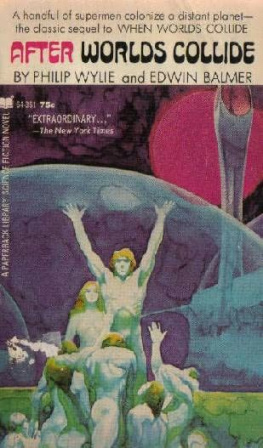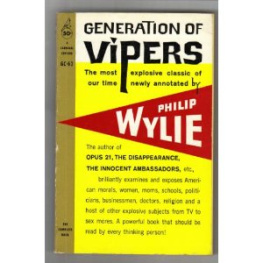Philip Wylie - Footprint of Cinderella
Here you can read online Philip Wylie - Footprint of Cinderella full text of the book (entire story) in english for free. Download pdf and epub, get meaning, cover and reviews about this ebook. genre: Detective and thriller. Description of the work, (preface) as well as reviews are available. Best literature library LitArk.com created for fans of good reading and offers a wide selection of genres:
Romance novel
Science fiction
Adventure
Detective
Science
History
Home and family
Prose
Art
Politics
Computer
Non-fiction
Religion
Business
Children
Humor
Choose a favorite category and find really read worthwhile books. Enjoy immersion in the world of imagination, feel the emotions of the characters or learn something new for yourself, make an fascinating discovery.
- Book:Footprint of Cinderella
- Author:
- Genre:
- Rating:4 / 5
- Favourites:Add to favourites
- Your mark:
- 80
- 1
- 2
- 3
- 4
- 5
Footprint of Cinderella: summary, description and annotation
We offer to read an annotation, description, summary or preface (depends on what the author of the book "Footprint of Cinderella" wrote himself). If you haven't found the necessary information about the book — write in the comments, we will try to find it.
Footprint of Cinderella — read online for free the complete book (whole text) full work
Below is the text of the book, divided by pages. System saving the place of the last page read, allows you to conveniently read the book "Footprint of Cinderella" online for free, without having to search again every time where you left off. Put a bookmark, and you can go to the page where you finished reading at any time.
Font size:
Interval:
Bookmark:
A. L. BURT COMPANY
PUBLISHERS
New York Chicago
Published by arrangement with Farrar & Rinehart, Inc. Printed In U. S. A.
COPYRIGHT, 1931, BY PHILIP WYLIE
Printed and Bound in the U. S. A.
by the GRADY BOOKBINDING Co. ALL RIGHTS RESERVED
It was 1910 and even Philadelphia, which had a reputation for somnolence, was awakening. The Merry Widow sailor, which had cast its shadow over Teddy Bears hugged to the persons of smart ladies, was about to be relegated to the attic. The bucket hat was coming in.
Gentlemen wore shoes with swollen toes, and elegant waistcoats. A few Indians remained to be slain for the betterment of mankind. It was still good advice to "Go West," and the rumblings, which in 1914 turned Europe upside down and possibly went a long way to modernize it, had not yet been heard.
In Rittenhouse Square, where the descendants of a thrifty colonial line still survived, noisy and clumsy automobiles vied for road room with victorias, traps and hansom cabs. The occupants of both the ancient and the modern vehicles frequently pointed to the mansion of Jonathan Leigh. It was like its fellows--a severe and uninteresting exterior housing century-old internal elaborations of decoration and design. It bore with a stiff aloofness the scandal which it had so recently harbored.
In this age scandal would scarcely be applied to the events which had taken place in the great house, but in 1910 it was still considered outrageous for the last male member of a glittering and opulent Philadelphia family to take in wedlock a concert singer. The romance of Jonathan Leigh and Daisy Storey had been their own business; the world knew only the facts but they were sufficiently glamorous.
Young Leigh had met Daisy while he was studying at Oxford. At that time the multitudes who attended the music halls were given the privilege of hearing her golden voice and the favors of her smile. The world at large never knew of Jonathan and Daisy punting along the Thames, discussing sometimes bitterly and sometimes wistfully the almost hopeless difference in their respective stations in life. The world never knew of their promises, their pledges and their engagement. To Jonathan the engagement meant that many people whom he called his friends would desert him and that he would bring back to Philadelphia a bride whom his social circle would disdain. To Daisy it meant that her love for the young American would be a burden to him--which possibly showed how much she cared for him.
An unhappy couple who pledged their troth. They were destined not to be married for some time, however, for Jonathan's father, possibly in receipt of rumors, summoned him back to the United States, and Daisy Storey was snatched from the music hall to the stage of grand opera in one breath-taking migration. They met two years later in New York City, while a rabid audience was still thundering its applause, and they were married on the next day. The newspapers had not yet invented scare heads but they did themselves extraordinarily proud with the story of Jonathan Leigh's marriage to Daisy Storey.
Mrs. Cornish-Griggs said: "I know the type perfectly, my dear. She has a golden voice ..
. and Jonathan will never hear the end of it."
Mrs. Wadley Butler laughed somewhat rancidly: "I went to the cemetery to-day" (the survivors of old Philadelphia families spent much of their time in the cemetery) "just to see if Jonathan's father was turning in his grave."
Somebody else said, "How gruesome," and another lady laughed.
This was on the day after the wedding and these people generated a high or perhaps a very low degree of refrigeration which, insofar as Daisy Storey Leigh was concerned, turned the Philadelphia landscape into ice--ice that was sharp enough to cut if she slipped even in the slightest degree.
The most distressed of them all was Chloe Laforge-Leigh, Jonathan's sister. The reasons for that distress were never wholly apparent. Her life was wrapped up in two things--the glory of the Leighs and the Laforges, and her brother. She had never contemplated the possibility of his marriage, for Chloe was shortsighted. Any conscious presuming of such an eventuality would doubtless have depicted a sister-in-law made of the smug, tepid and inanimate stuff of the Philadelphia debutante of the early twentieth century. Chloe felt that the opera singer had stolen her brother body and soul and had defamed him. She hated Daisy Storey with an undying, unyielding and single hatred which increased steadily.
It increased particularly after Daisy's return with her husband to Philadelphia, when Chloe perceived that the people were beginning to like the former opera singer, to take her up socially and forget her obscure origin. It reached its climax when Chloe learned one day that Daisy was to be the mother of Jonathan Leigh's child. Chloe usually kept excellent control of herself but under those circumstances she lost that control. She went directly to her brother.
"Isn't there some feeling of shame in you, Jonathan, when you think that you are introducing as heir of a flawless line a child whose mother is a common--"
Jonathan said, "Chloe!" He said it in such a way that his sister stopped. He paced moodily back and forth in his library for a time and then spoke again. "It is going to be necessary, Chloe, for me to speak plainly. I realize that your offer to stay here with us in Rittenhouse Square and to assist with my wife's introduction to Philadelphia society is not motivated entirely by good-will.
On more than one occasion it has occurred to me that you have remained in the house with my wife and myself not to help us but to make life more difficult for her. I am glad that you have expressed your true sentiments about Daisy. I prefer honest antagonisms to poisonous sweetness."
Chloe cried. Jonathan Leigh found himself patting her shoulder and stupidly repeating, "I didn't mean to hurt you."
Afterward his sister was more careful to cover the devious ramifications of her thoughts.
She became something of a recluse but she ran the Leigh household perfectly according to her traditions.
In 1911 the child was born. It was named Muriel. If Leigh was disappointed in having a daughter instead of a son he showed no trace of that disappointment. Daisy was ecstatically happy but from the time of the birth of Muriel she began to fail steadily in health. That circumstance worried Leigh continually and it worried him at a time when he had a multitude of other things on his mind.
The house of Leigh and the house of Laforge had originated respectively in England and France. They had always been empire builders. They had renounced titles to colonize America before the Revolution and scions of both families had moved steadily from the Atlantic toward the Pacific. They had accumulated vast wealth which had been poured through the funnel of inheritance into the possession of Jonathan.
At the turn of the century he not only owned vast properties, but various new industries and enterprises had attracted his interest. The era marked the beginning of the great oil booms and oil had already been discovered on some of his properties. He was pioneering in hydroelectricity; he owned coal and copper mines. At the end of the century's first decade it was oil particularly which absorbed him and his life was divided equally between that interest, his newly born daughter, and the waning health of the wife, whom he adored.
Two events-occurred simultaneously. Leigh walked into the yellow bedroom where his wife had spent many weary weeks in a convalescence that never ended and he found her pale and distraught.
"I am afraid I have bad news, darling."
Leigh's face smiled but his whole spirit was chilled. "Yes?" he said gently.
"The specialists we sent for called this morning. They didn't give me the name of whatever makes me so weak but they did tell me that there was only one place in the world where it could be cured. A doctor they know about has a hospital in the middle of the woods, high up on the mountain, in Germany. They said I must go there at once, and they advised me to take the baby with me for the good of the baby as well as myself. I would have to be there for quite a while-six months maybe."
Next pageFont size:
Interval:
Bookmark:
Similar books «Footprint of Cinderella»
Look at similar books to Footprint of Cinderella. We have selected literature similar in name and meaning in the hope of providing readers with more options to find new, interesting, not yet read works.
Discussion, reviews of the book Footprint of Cinderella and just readers' own opinions. Leave your comments, write what you think about the work, its meaning or the main characters. Specify what exactly you liked and what you didn't like, and why you think so.

